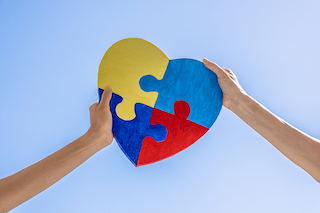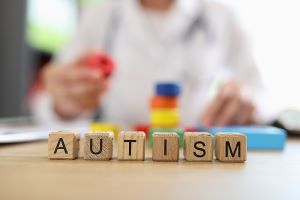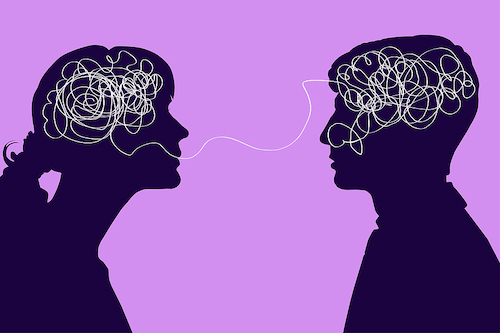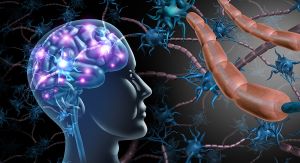January 16, 2024
by Patricia Tomasi

autistic children in the aftermath of events on October 7th, 2023 in Israel. “Following the unprecedented attacks by Hamas on October 7th, we sought to understand the psychological experience of autistic and non autistic children and their parents,” Dr. Judah Koller of the School of Education at the Hebrew University of Jerusalem told us.
[More]
October 31, 2023
by Patricia Tomasi

A new study published in the Lancet looked at autism in England with regard to assessing under-diagnosis in a population-based cohort study of prospectively collected primary care data. “People often think of autism as a childhood condition, and historically, autism has mostly been diagnosed in children,” study author Elizabeth O’Nions told us. “Many autistic adults were not diagnosed when they were children, either because autism didn’t exist as a diagnosis when they were young, or the criteria were narrower, meaning that only a very small number of people were considered to be autistic at the time.”
[More]
January 31, 2023
by Patricia Tomasi

A new study published in the Journal of Molecular Psychiatry looked at an autism-associated mutation in human neurons. “In this study, we are trying to understand the mechanism underlying a genetic mutation linked to autism,” Dr. Le Wang, lead author, told us. “Since the gene is involved in the information flow in the brain, we wanted to find out if the genetic mutation leads to abnormal information flow in humans using a human neural model.”
[More]
December 27, 2022
by Patricia Tomasi

A new study published in Nature Communications delved more into autism by growing brain-like organoids. “The human brain is unique, and certain aspects of human brain development, and brain diseases, are notoriously difficult to study using animal models,” study author Alex Shcheglovitov, PhD told us. “We wanted to develop a new method to model early aspects of human telencephalic brain development in health and disease. Our approach was to make human brain organoids in a robust and reproducible manner.”
[More]
February 28, 2022
by Elizabeth Pratt

A significant number of people who die by suicide may have undiagnosed autism.
Researchers from the University of Cambridge’s Autism Research Centre and the University of Nottingham found in a study that a notable number of people who die by suicide have evidence of autistic traits at elevated levels.
[More]
February 25, 2021
by Elizabeth Pratt

Psychologists in the UK have developed the first ever mind reading questionnaire designed to assess how well people understand what others are truly thinking.
The researchers from the University of Bath, Cardiff and London developed the new questionnaire and in doing so determined that women are much better at understanding what others may be thinking.
[More]
November 24, 2020
by Patricia Tomasi

A new study published in the Journal of Nature Communications looked at social cues and the b
[More]
September 1, 2020
by Patricia Tomasi

A new study published in the Journal of Biological Psychiatric looked at the association between early neural activity and Autism Spectrum Disorder (ASD). “We wanted to characterize early brain differences that can be detected before the behavioral signs of autism emerge,” study author Dr. Abigail Dickinson told us.
[More]
July 14, 2020
by Patricia Tomasi

According to the Centers for Disease Control and Prevention, approximately one in 54 children in the United States has been diagnosed with autism spectrum disorder (ASD). Thirty million people in the U.S. suffer from an eating disorder and this number includes all ages and genders. Is there a connection between the two?
[More]
February 26, 2020
by Elizabeth Pratt

A study by researchers at the University of California Los Angeles had found it is possible to determine a person’s ability to feel empathy by studying their brain activity whilst resting rather than when engaged in activity.
[More]